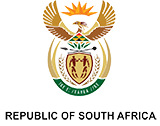Defeating COVID-19
President Cyril Ramaphosa said the COVID-19 pandemic could have cost South Africa far more in lives lost had it not been for the government’s “unrelenting and comprehensive response” to the disease.
However, the pandemic had also underlined the need to intensify efforts to prevent the spread of COVID-19, strengthen the health system and undertake a massive vaccination programme.
COVID-19 vaccine programme
To date 3.8 million people have been registered on the electronic vaccination database.
— Cyril Ramaphosa 🇿🇦 #StaySafe (@CyrilRamaphosa) June 27, 2021
The national vaccination programme will continue along three defined streams.https://t.co/pvoJdzQB1Z
The success of the vaccination programme will rely on active collaboration between all sectors of society. We are greatly encouraged by the active involvement of business, labour, the health industry and medical schemes in particular in preparing for this mass vaccination drive.
Health workers and other people working at the frontline of the response to the COVID-19 pandemic will be prioritised in the first phase of the vaccine rollout programme.
Further vaccine supplies will be made available to South Africa through the African Union’s Vaccine Acquisition Task Team facility, and engagements with all vaccine manufacturers are continuing to ensure sufficient quantities of vaccines suitable to South African conditions.
All provinces have vaccine rollout plans.
COVID-19 social and economic relief
The COVID-19 pandemic has contributed to rising poverty and deepening inequality, with South Africa’s economy 6% smaller in the third quarter of 2020 compared with the last quarter of 2019: 1.7-million fewer people were employed, and unemployment stands at 30.8%.
However, the government’s relief measures and the phased reopening of the economy augurs well for strong employment recovery by the end of 2020.

The government’s social and economic relief package, introduced in April 2020, has identified R500-billion (10% of GDP) in measures to provide cash to poor households, provide wage support and provide relief to struggling businesses.
A third of South Africa’s population, 18-million people, received additional grant payments, lifting more than five-million above the food poverty line.
More than R57-billion in wage support has been paid to over 4.5-million workers through the Special Unemployment Insurance Fund Temporary Employer/Employee Relief Scheme (TERS), and the period for the Special COVID-19 Grant of R350 will be extended by a further three months.
Small and medium-sized businesses have received more than R1.3-billion in support, and over R70-billion in tax relief was extended to struggling businesses. About R18.9-billion in loans has been approved through the loan guarantee scheme for 13 000 businesses, and the COVID-19 TERS benefit will also be extended until 15 March 2021, only for those sectors that have not been able to operate. National Treasury will work with its partners and stakeholders on improvements to the loan guarantee scheme to better address the realities of SMMEs and other businesses.

